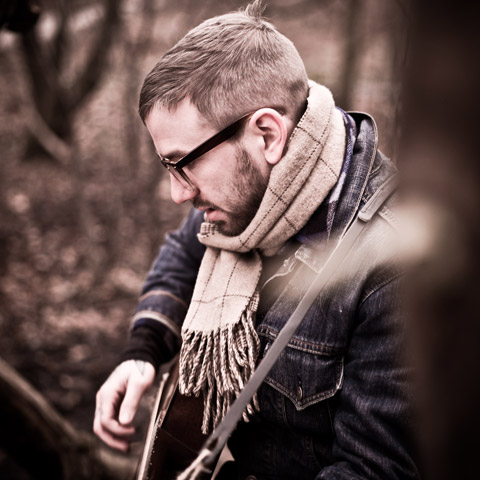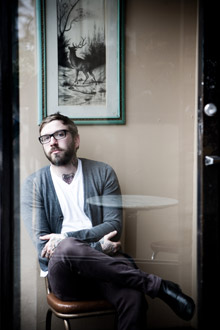
ROAP MAPS “I see myself as a touring musician,” says Dallas Green. “I’m going to make a record so I can go out and play it for people.” |
When Canadian post-hardcore band Alexisonfire announced in August that they were disbanding, Dallas Green should have been relieved. Since the middle of the last decade, the guitarist/vocalist had stretched himself thin by splitting his time between Alexis and his folk-centric solo project, City and Colour. But as it turns out, removing one band from Green's workload hasn't yet reduced his stress."I think it's because this is my first attempt at focusing all my energy on City and Colour, and it's getting a lot bigger and it's moving faster than I maybe imagined it would at first," Green says via phone from St. Louis on a rare off day. "The thing is, as much as I'm not in Alexisonfire anymore, I still haven't had a break. I'm still recovering — or not recovering — from the years I spent going back and forth."
Although they've been a critical and commercial darling for years in Canada, City and Colour are finally enjoying success Stateside. Their third album, Little Hell (Vagrant), was released in June to critical acclaim, and their current tour — Green's first real, extended, comprehensive tour of America under this moniker — has drawn solid crowds and even a famous guest star in Pink, a one-time City and Colour tourmate, who hopped onstage in Los Angeles to duet with him on "What Makes a Man?"
Still, despite Green's higher profile, Little Hell resonates because of its intimacy. The album feels like a defrosted version of Bon Iver's latest: evocative acoustic songs driven by cooing pedal-steel, sparse guitar, yearning vocals and the occasional stern cello alternate with heavy-metal folk and windswept dirges. Accordingly, Little Hell's lyrics display wrenching vulnerability. "O'Sister," about Green's sibling, comforts someone seemingly battling crippling depression, while on "Fragile Bird," he explores feeling powerless against his wife's night terrors. Other narrators on the album admit they're difficult to deal with, or describe bleak economic surroundings and spiritual disillusionment.
 |
As a vocalist, Green's not emotionally desperate as he tackles these themes; like Jason Molina or David Bazan, he confronts them using levelheaded, confessional tones. But Little Hell stands apart because Green often uses his upper register like a soul or R&B crooner. "I've always sort of strived to sing as much like a black woman [as I can]," he says with a slight laugh. "I've always loved singing like that, and felt comfortable singing that way when I sing along to my female R&B mix I listen to before I go onstage."Green cites Estelle, Mary J. Blige, and Alicia Keys as inspirations — and it's no accident these three are powerful live performers and savvy recording artists. "I see myself as a touring musician," he says. "I'm going to make a record so I can go out and play it for people. I want to be able to go out and do it. I don't want to make this record perfect with Auto-Tune and ProTools and triggering and creating all the tracks, and then have to learn how to recreate that [on stage]."